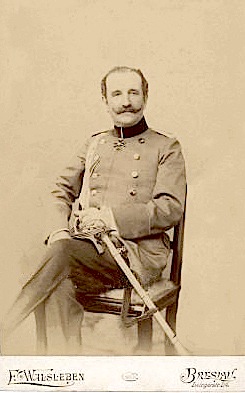SCHOLARS AND TABLOIDS seem to be worlds apart. One serves the higher purpose of knowledge, the other wallows in scandal. But how wide is the gulf between them really? Or is there any gulf at all? Scandals as we know them are a product of the mass media and the New Journalism that emerged in the UK and the U.S. at the end of the 19th century. But also Germany in the age of Kaiser Wilhelm II had its fair share of scandals. Historians and sociologists have shown that the heated discussions in the press were not just driven by sensationalism but were also fed by contemporary academic discourses.
Psychiatrist Richard von Krafft-Ebing died in 1902, but a year later his ideas about sexual inversion would inform the professional discourse about human sexuality that arose in the wake of the highly publicized trial of child-murderer Andreas Dippold. This scandal, which rocked Germany for months and years, has recently been retold by Michael Hagner in Der Hauslehrer: Die Geschichte eines Kriminalfalls (“The House Teacher: The History of a Criminal Case”). Coincidentally enough, another recent book tells the history of a contemporary episode known as the Eulenburg affair, which is told by Norman Domeier in (Der Eulenburg-Skandal: Eine politische Kulturgeschichte des Kaiserreichs (“The Eulenburg Scandal: A Political Culture History of the Kaiser Reich”), a scandal that kept the public excited for nearly three years starting in 1906. Finally, as luck would have it, an authoritative biography of Krafft-Ebing has also appeared of late in Germany, Heinrich Ammerer’s Am Anfang war die Perversion (“In the Beginning Was the Perversion”).
Michael H. Gellings is a historian and author in Fulda, Germany, writing about film, architecture, medicine, and gender.








Discussion1 Comment
The argument that homosexuality became a shield against social pressures seems but a pie in the sky notion, but the real tragedy of this naive age remains unexplored here with only a mere hint.
When issues of male sexuality arose driven by zealots like Harden, Germanic masculine sensibilities proved no sturdier than a leaky balloon.
This coupled with their societal political issues, their increasingly fraught view of their position within the power structure of Europe led to the hyper masculine response we know as World War One.
I can add however these nuances were new to this product of multi-generational membership in the RE Artillery Corps where one’s mettle thankfully was never dependent upon one’s sexual orientation since homosexuality was just another fact of life.